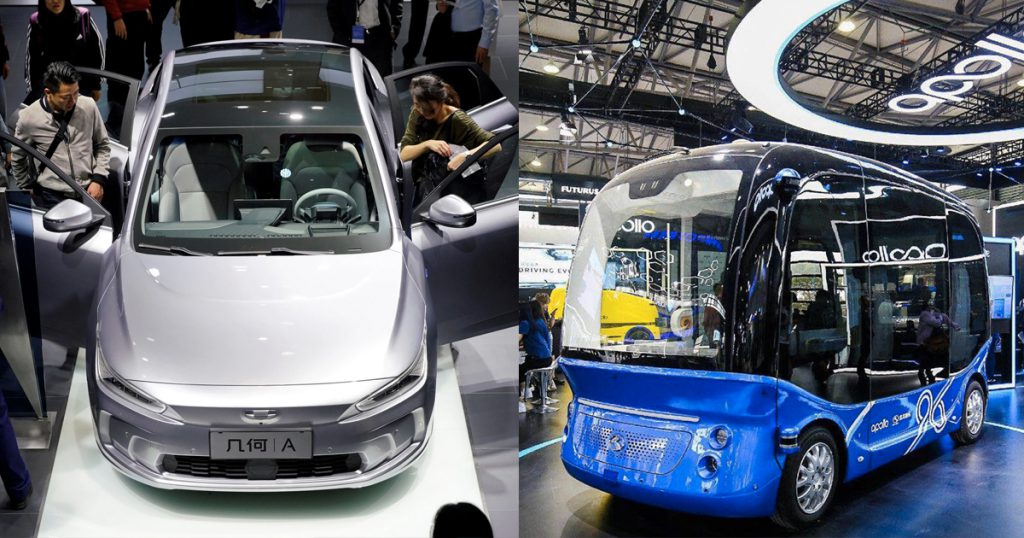Autonomous vehicles in Singapore are still very much in testing phases, with trials bound to controlled areas and simple routes.
The Government’s Smart Nation website records some driverless shuttles that are currently in operation taking people around Gardens by the Bay and Nanyang Technological University, and even a driverless vehicle by A*STAR that has taken Prime Minister Lee Hsien Loong for a spin during one of its trials.
While it’s still a stretch away from mainstream use, local company Asia Mobility Industries (AMI) is gearing up to make driverless buses and taxis widely available soon.
In fact, AMI believes it can be “the largest robo-taxi operator in the region by 2025”.
The Singapore firm is now working with four prominent Chinese companies to drive this technology forward.
Firstly, it has signed a Memorandum of Understanding (MOU) with car maker Geely to develop these robo-taxis that will power its ambition.
And to help them break out of fixed routes to take on the entire island, AMI has tied up with China’s largest mapping company NavInfo to develop the advanced mapping technologies needed for autonomous taxis.
AMI also has a preliminary agreement with Chinese battery manufacturer CATL to sell its automotive batteries in Singapore.
Besides this, AMI is planning to bring Baidu’s driverless buses, which began mass production in China last year, to Southeast Asia.
They’ve already been in a close relationship with Baidu for the past four years.
The two previously set up a US$200 million joint fund, Apollo Southeast Asia, to invest in autonomous mobility and smart transportation technology.
AMI co-founder Dr. Lim Jin Li lets in on his choice to work with Chinese firms:
“China, perhaps unbeknownst to many, is a hotbed for technological development in the Internet of Things and autonomous mobility. Chinese technology, particularly in the mobile arena, has consistently shown itself to be far more advanced, useful and adaptable to the wider public,” he says.
Already Mapping Their Way
AMI serves the transport industry by localising mobility solutions from various manufacturers and suppliers to suit different markets.
They describe themselves as a “system integrator” that takes existing technology and develops it further.
By now, the firm has recently completed a high-definition mapping of Singapore’s roads, which can enable autonomous vehicles to drive even if lane markings are absent.
They’re also in the process of setting up a network of ground stations around the country for high-precision tracking.
AMI says their tracking capabilities are now up to “decimetre accuracy for static objects and 3 to 5cm accuracy for moving objects”.
This tracking technology can be applied for various uses, for example to monitor the speeds of personal mobility devices and keep them off the roads.
On top of deploying autonomous buses and taxis, AMI hopes to become Singapore’s “largest geo-location company” as well.
Featured Image Credit: Nikkei Asian Review, Pandaily











